REVIEW: ‘da Kink in My Hair at TO Live/Soulpepper
‘da Kink in My Hair is back in Toronto for its twentieth anniversary, a co-presentation by TO Live and Soulpepper, directed by Soulpepper artistic director Weyni Mengesha. Since its debut in 2001 there have been several major productions around North America and England, along with the 2007 TV adaptation. I remember watching the show as a child, and, honestly, not knowing what was going on. I was too young to actually understand what it was about, but I did know there were Black women in a Black salon on my TV. That’s all that mattered.
Fast forward twenty years and the piece is back again. Luckily this time, I can understand the importance and relevance of the work. The conversations surrounding Black femininity have always been the same, speaking about misogynoir, hair, Black men, violence, love, and more. Black women have been going through the same shit for a stupid long time, yet through it there is also space for joy.
Obviously, I had to bring the first person to ever do my hair: my mother. (As a testament to the show’s greatness, she stayed awake the whole time!) And she talked back, in the way she might do while reacting to a television show at home. This sort of speaking back is not often encouraged in the theatre, yet in this production it was not only celebrated but asked for. Before the show started, audiences were encouraged to talk back and to laugh. We were also warned that there would be hard subjects, with space for folks to leave if necessary.
I found that this pre-show statement and land acknowledgement really helped set an understanding for what we would be experiencing. ‘da Kink does not shy away from the pain that Black women — Black people — experience. The work covers topics such as Black sexuality and queerness, gun violence, and child abuse. I found that there was a lot of care taken before and after approaching these topics. The hurt that is held in Black communities due to gun violence was endured. The pain felt for children abused by an older figure in their lives was felt. We were given that space to cry, and to grieve. But tears do not help to solve the problem: after each of the scenes we were given solace. Solace in the form of a memorial for Black men lost to gun violence, and in the form of dub poetry in order to give voice to the children. As adults we have a responsibility to children so that they know they can come to us. So that we too are holding abusers accountable.
The way the show gives and holds catharsis is only one instance of the brilliant story-weaving brought by the cast and Mengesha’s directing. Mengesha has conceived a beautiful way for the women to simply exist in space, while matching that with a seamless integration of chorus sequences. We spend most of the time watching the group interact in a salon, saying hello to the folks they have not seen in a while, responding to the gossip they overhear. There are also monologues spliced throughout the production as somebody is getting their hair done. Often, the salon clears and it is all eyes on the speaker; throughout the monologue the chorus comes out to support the stories being told centre stage. There’s a gorgeous use of props, costumes, and music in order to propel the story forwards: the chorus quickly pick up these items and transform the stage, where something like tinfoil becomes cameras for paparazzi, and the inside of the salon promptly becomes the middle of a church sermon.
Each of the composite parts just makes sense, brilliantly amplifying one another. Audiences first see the set (designed by Joanna Yu and Patricia Reilly) where we are out on a street in Little Jamaica on Eglinton Street West in Toronto. As the show starts the salon itself comes together, as if we the audience are entering into it ourselves. Corey Butler (composer and musical director): chef’s kiss. The music is brilliant, and unexpected (unless you’ve read the description on TO Live’s website). Every song and tune played and sung is electrifying.
And of course I have to talk about the costumes (designed by Rachel Forbes and Des’ree Grey) and hair (Allison Hill)! Each of the ladies onstage has unique outfits that communicated who they are as people. Not only do the outfits change but the hair changes as well, and not a single lace in sight! For a show set in a salon, the hair I saw did not disappoint. It was lovely to see such a diverse array of styles on the stage.
There’s a diverse range of talents on the stage, as well. Alana Bridgewater, Chelsea Russell, and Tiffany Deriveau are on the team as vocalists, their singing bringing a specific power to the work. In a similar manner, d’bi.young anitafrika’s dub poetry is exactly the statement needed after a chilling monologue about a young girl (Stacey-Anne) doing what she feels is necessary to keep her family happy. The cast works brilliantly together, with notable monologues by Satori Shakoor (Miss Enid), Tamara Brown (Patsy), as well as Olunike Adeliyi (Nia), Orenda Stephens-Thompson (Novelette), Miranda Edwards (Sherelle), and Shakura Dickson (Sharmaine).
The year of our good Lord 2022 has been abundant for Black theatre in Toronto (and Stratford). ‘da Kink in My Hair is the last Black theatre piece of the year. I won’t beg you to go see the show, but I’ll say this: if you don’t, you’re missing out.
‘da Kink in My Hair runs at the Bluma Appel Theatre December 6–23, 2022.

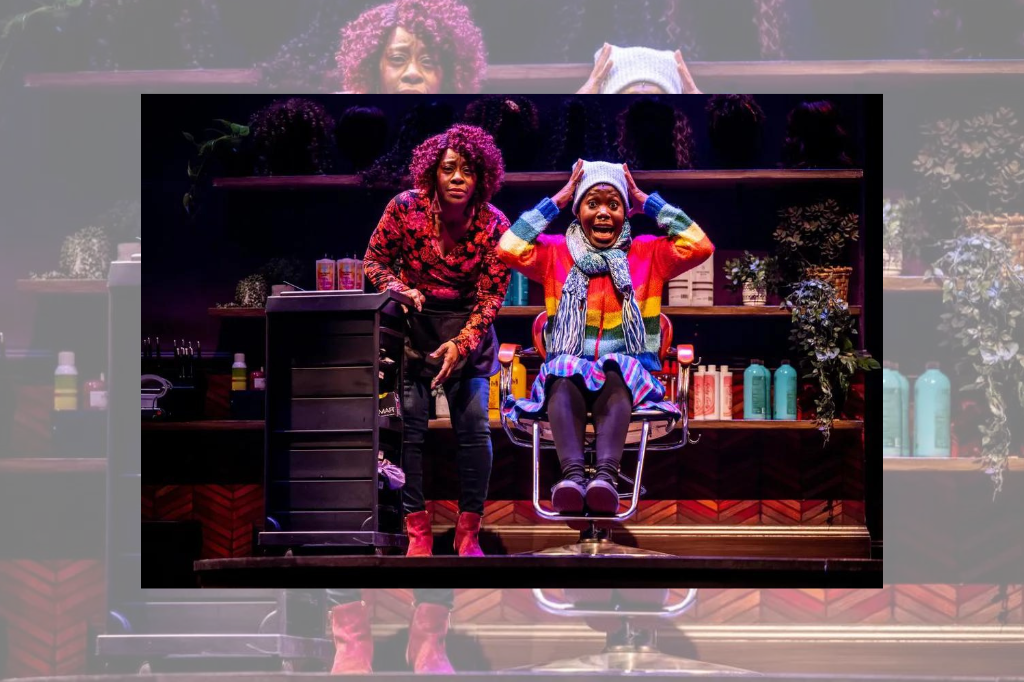
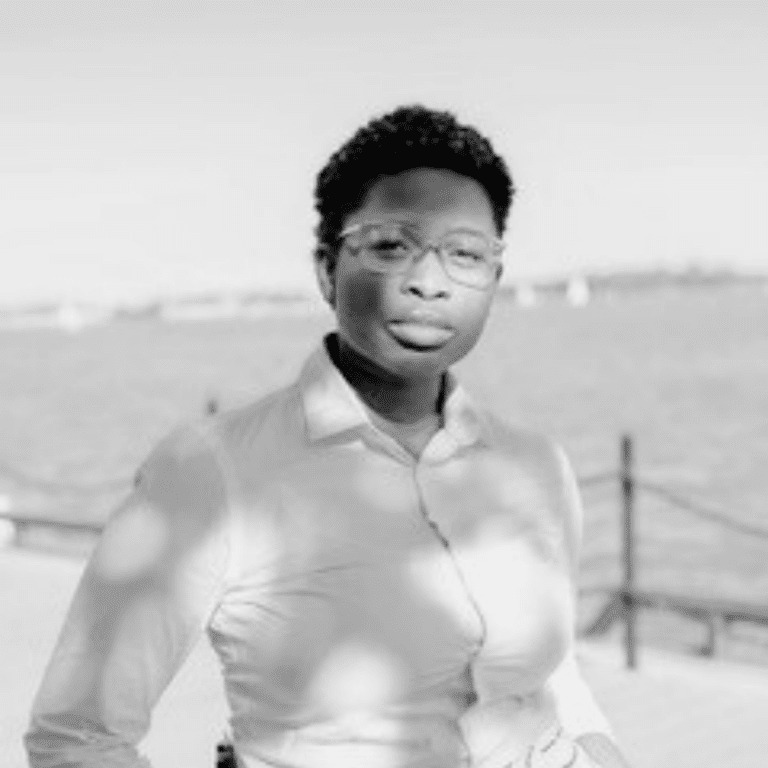






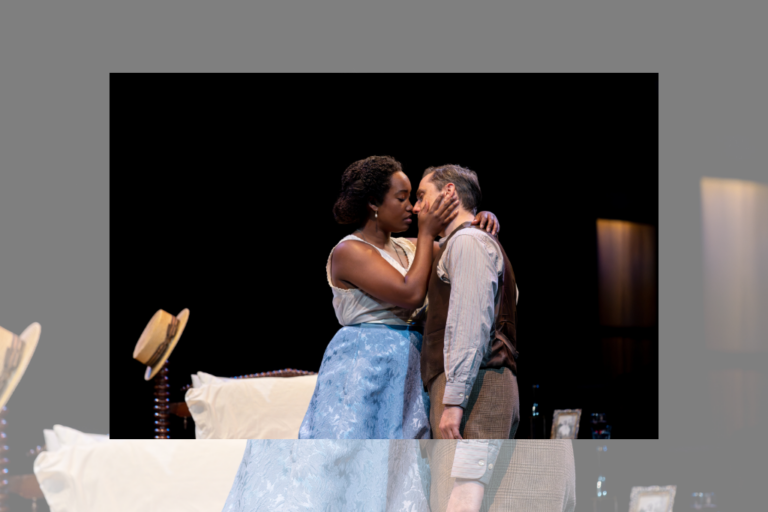
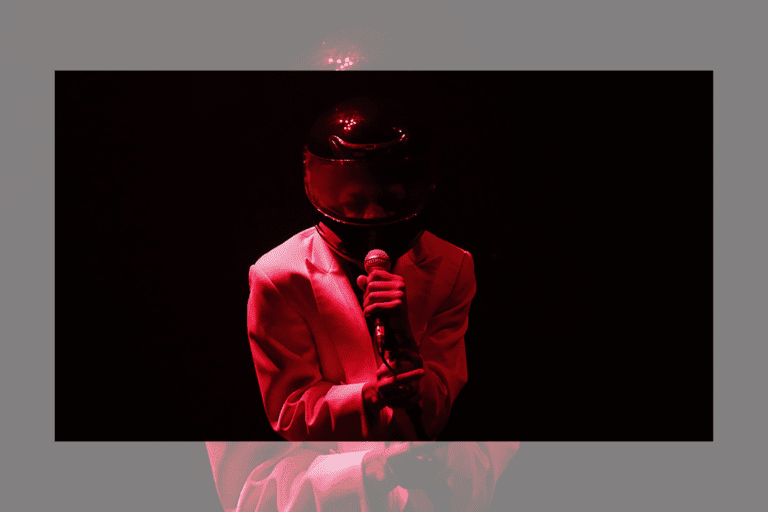

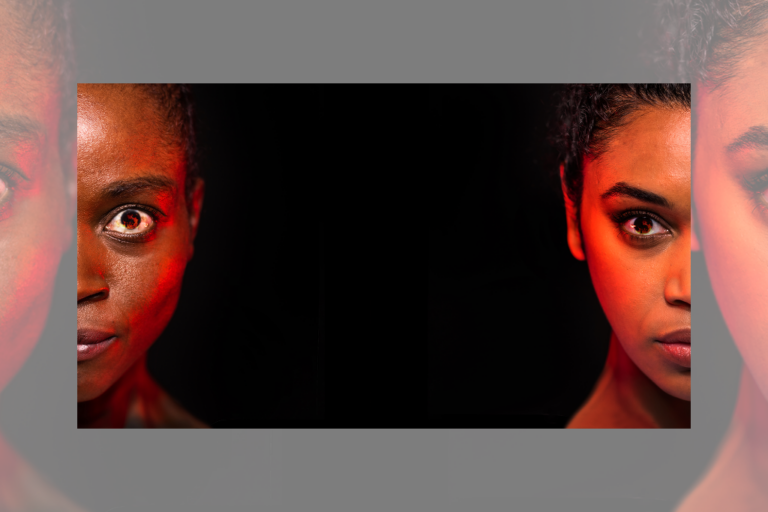
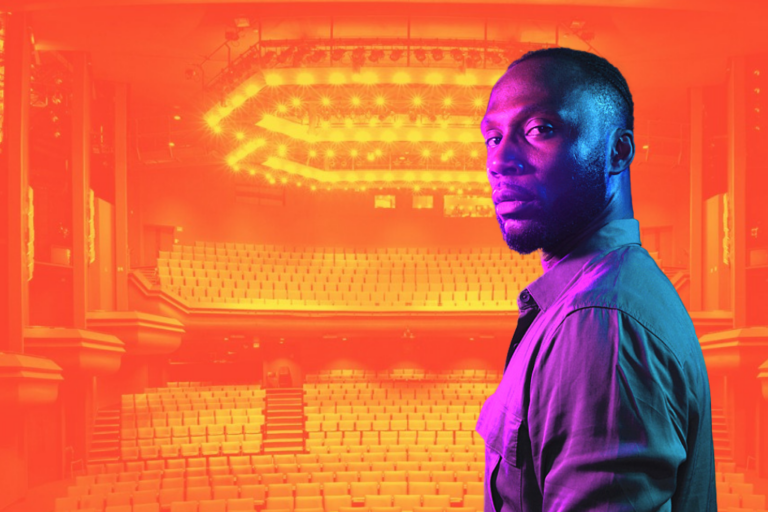
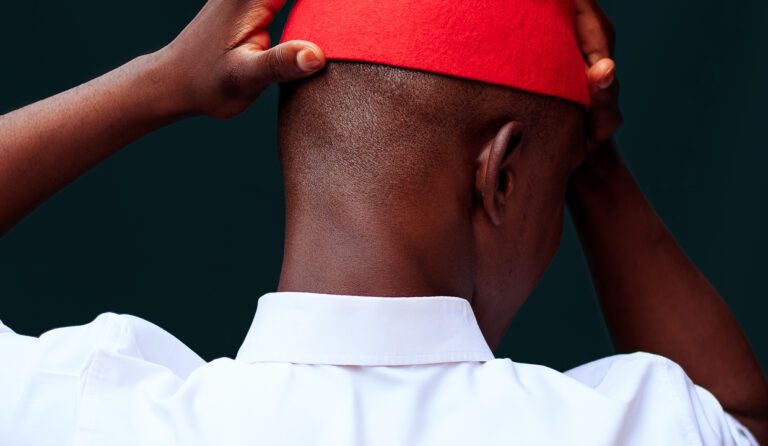
Comments